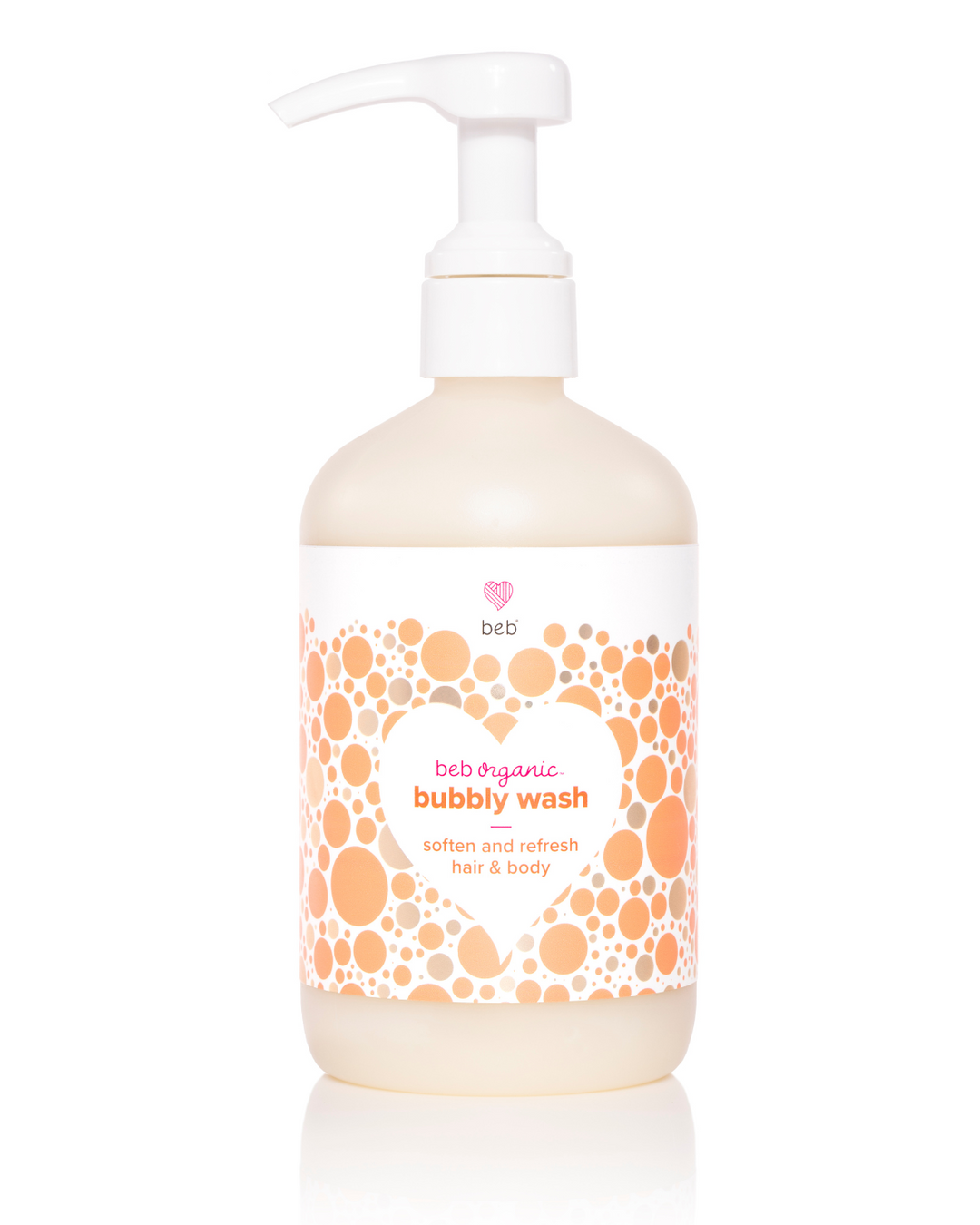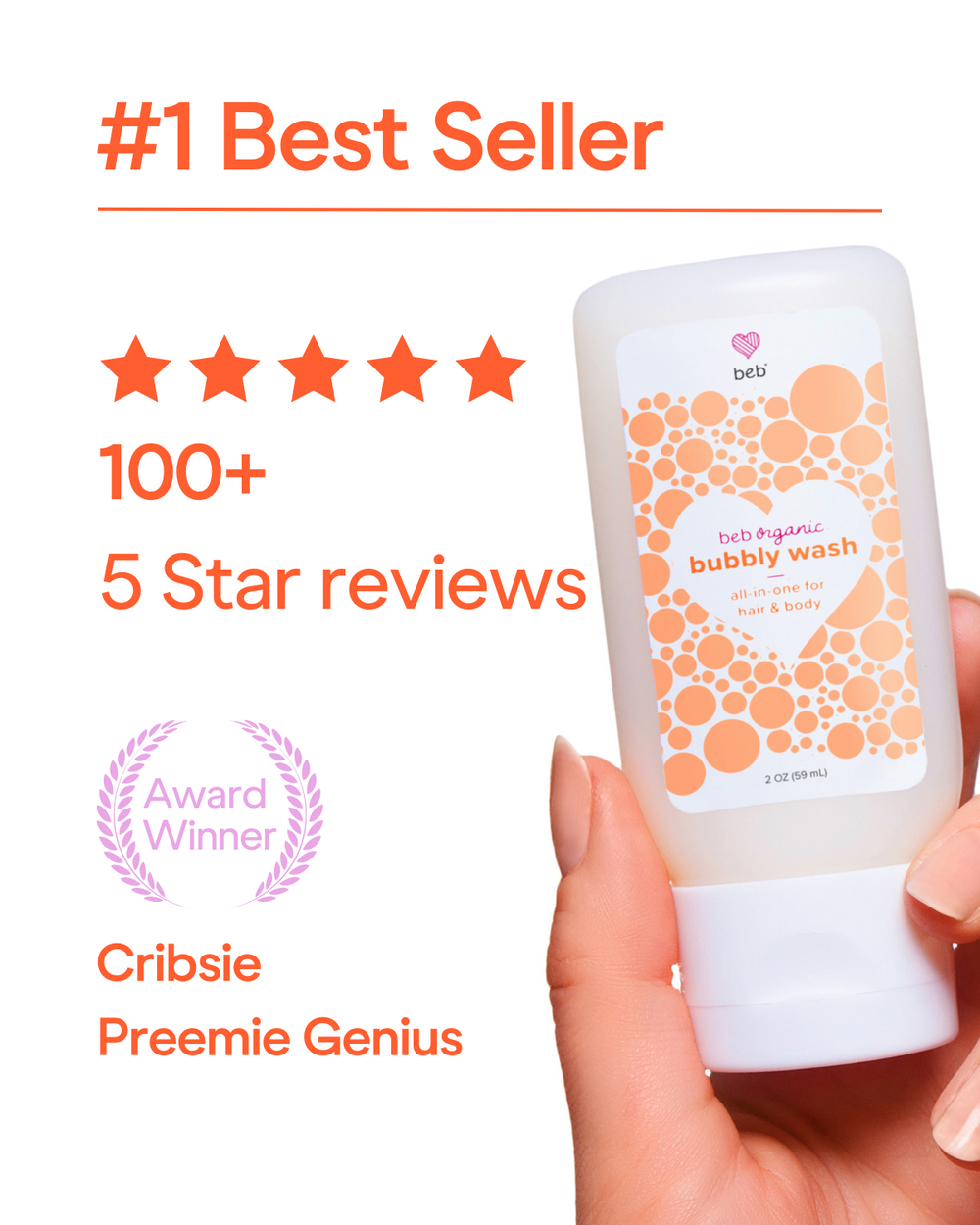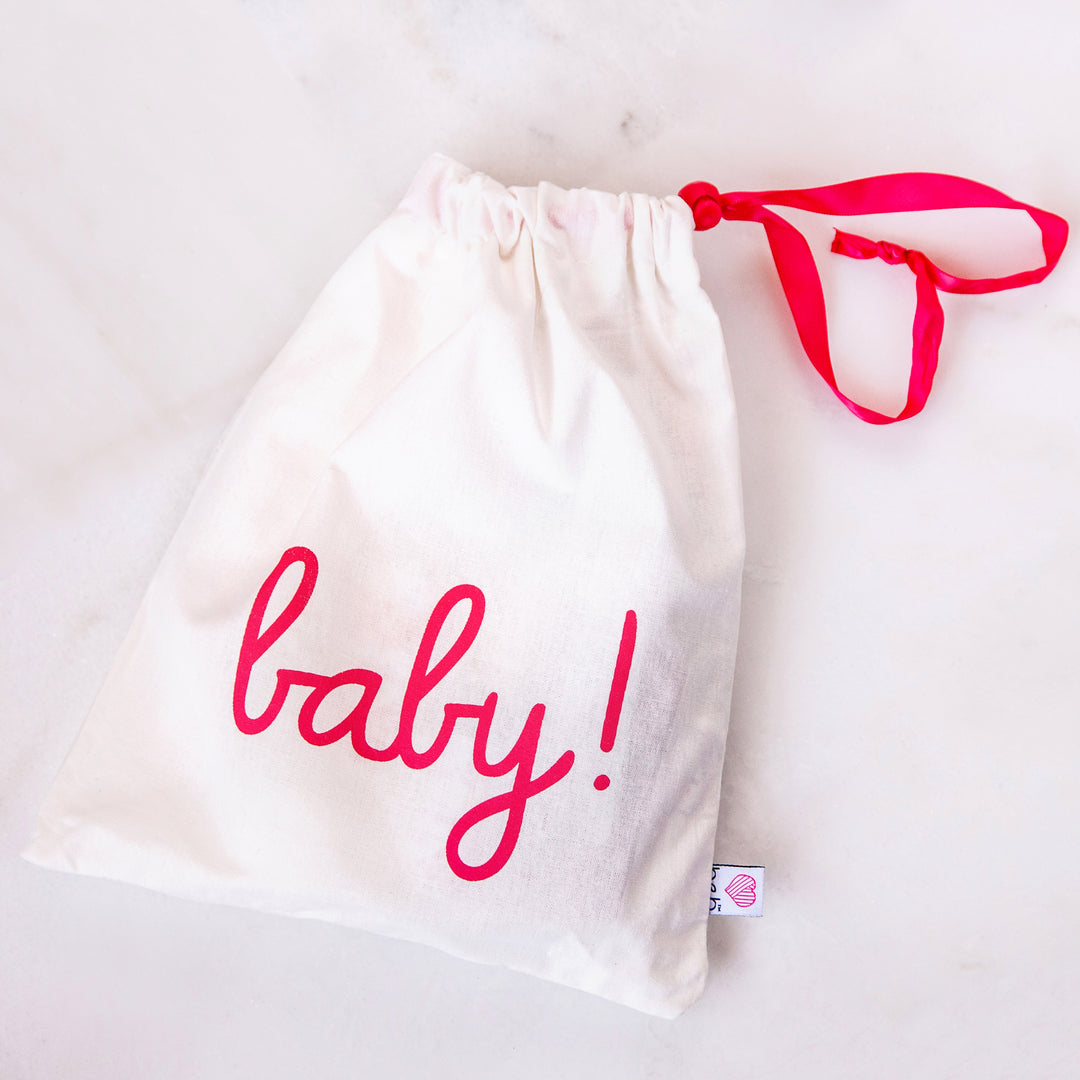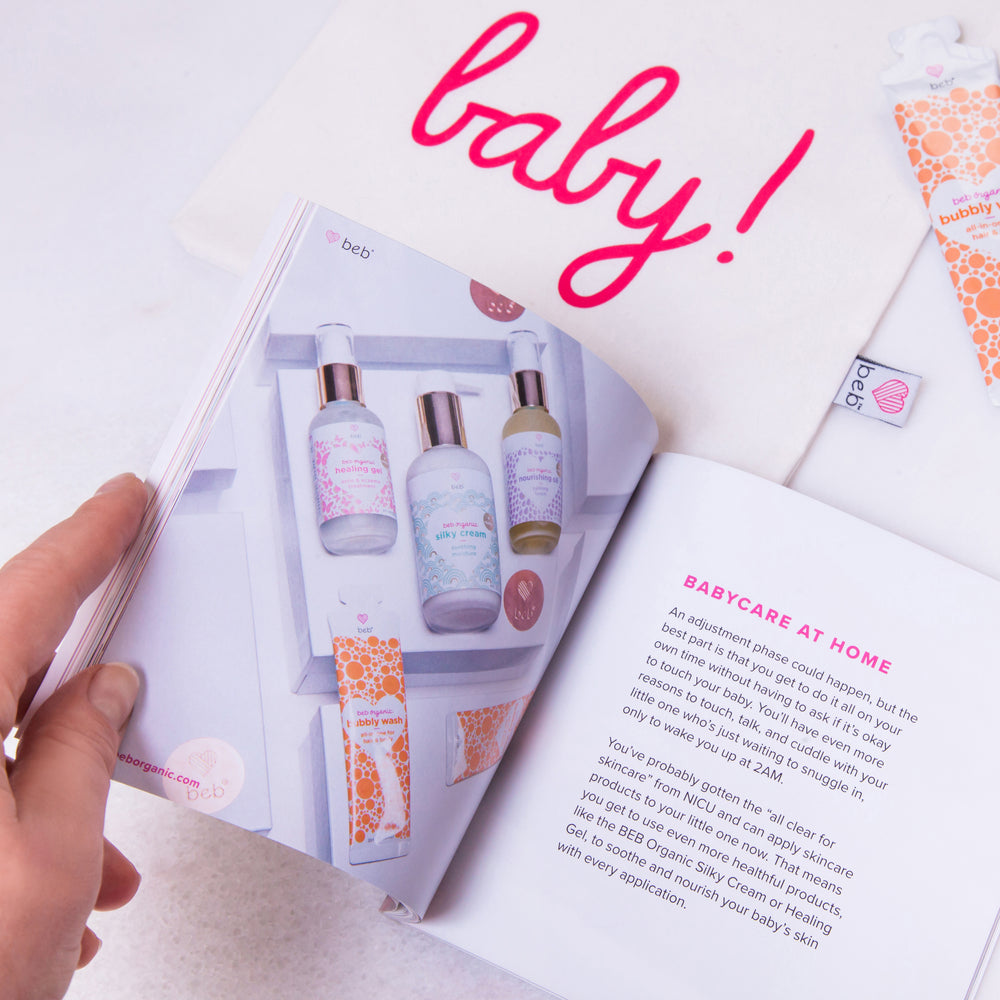Beyond the Incubator: How Intentional Touch Supports Your Baby’s Brain
When your baby is born early, the world suddenly becomes filled with new machines, medical terms, and an entirely different rhythm of care than you may have imagined. One of the most essential—and most intimidating—tools in the NICU is the incubator. Often referred to as a "substitute womb," incubators protect fragile newborns by keeping them warm, reducing infection risk, and regulating light, sound, and humidity.
But here’s something not every parent hears: the incubator is just the beginning of your baby’s care—not the end of your ability to connect. In fact, how you engage with your baby inside the incubator can meaningfully shape their future development—especially their neurodevelopment.
Let’s explore how incubators work, how they help, and how you can turn even the most clinical care moments into opportunities for connection, bonding, and brain-building.
What Is an Incubator—and Why Is It So Important?
Incubators are climate-controlled, enclosed beds that provide critical support for babies who are born too soon or need special medical care. Their primary role is to:
-
Regulate temperature and humidity
-
Limit exposure to germs and allergens
-
Monitor and stabilize oxygen levels
-
Reduce overstimulation from light and noise
-
Protect delicate, underdeveloped skin
There are several types of incubators—each one engineered for a specific developmental stage:
-
Closed incubators create a sealed environment to reduce infection and maintain humidity.
-
Double-walled incubators offer extra insulation to prevent temperature and moisture fluctuations.
-
Servo-controlled incubators respond to baby’s body temperature in real time, adjusting climate levels automatically.
-
Open warmers (or Armstrong incubators) provide radiant heat and allow for more interaction, often used for babies who no longer need respiratory support.
-
Transport incubators make it possible to safely move a baby between departments or hospitals.
No matter which kind your baby is in, incubators serve one goal: to support life and stability while their body grows strong enough to thrive on its own.
Why the Incubator Alone Isn’t Enough
While incubators are lifesaving, they can unintentionally isolate a baby from the very thing their developing brain craves most: human touch.
A baby’s sensory development—especially tactile and auditory processing—explodes in the third trimester. Preemies, who miss part of this stage in the womb, are placed in a world filled with flat surfaces, plastic walls, and medical tubing. That’s where intentional touch comes in.
Intentional, developmentally supportive touch can help fill the sensory gap. It’s not just comforting—it’s essential to brain development.
Touch as a Tool for Neurodevelopment
The science is clear: skin-to-skin contact, massage, and nurturing touch influence neurodevelopment in powerful ways. Studies show that babies who receive intentional, positive touch experience:
-
Lower stress hormone levels
-
Better sleep and digestion
-
More stable heart and breathing rates
-
Faster weight gain
-
Enhanced bonding with caregivers
-
Improved cognitive and emotional outcomes later in life
These benefits aren’t limited to kangaroo care (though that’s a powerful practice). Even gentle, daily care—like diaper changes, bath time, or skincare routines—can become moments of brain-building connection.
Skincare as a Sensory Bridge in the NICU
At BEB Organic, we believe skincare is so much more than cleansing and moisturizing. When done with intention, it becomes a sensory bridge—a way to nurture a baby’s brain through touch, temperature, and even scent.
Our products were originally created for NICU use, where even the gentlest care must meet the highest medical standards. Every ingredient is chosen for purity, safety, and its ability to support fragile, sensitive skin.
For babies in incubators, even small touchpoints—like applying a drop of Nurturing Oil during a gentle massage, or cleansing with Bubbly Wash during bath time—can create positive neural pathways. These experiences support:
-
Tactile development, as your baby learns to interpret safe, nurturing touch
-
Olfactory connection, using subtle natural scents to promote bonding and familiarity
-
Emotional security, through the comfort of consistent, loving routines
Making Every Moment Count: Intentional Touch Practices
You may not be able to hold your baby as often as you’d like in those early days, but that doesn’t mean you can’t bond. Here’s how to make the most of your time together—even with the barrier of an incubator between you.
1. Hand Containment
Gently place your warm, still hands over your baby’s head and feet. This mimics the enclosed feeling of the womb and helps your baby feel secure. No stroking or rubbing is needed—just your quiet, present touch.
2. Diapering with Intention
Every diaper change is an opportunity to connect. Speak softly. Move slowly. Warm your hands first. Use a few drops of Soothing Serum or Silky Cream afterward to comfort irritated skin and create positive touch associations.
3. Gentle Skincare Rituals
Incorporate Bubbly Wash, Nurturing Oil, or Silky Cream into a short, soothing routine once your care team says it's safe. Apply slowly, with attention and care. Let your baby feel your presence in every moment.
The Future of Incubators: Innovation + Connection
As preterm birth rates increase globally, the need for affordable, portable, and human-centered incubator designs grows too. One promising development is the Handy Incubator, a lightweight, low-cost unit designed to keep babies warm and oxygenated—while allowing for continuous mother-baby bonding.
It’s a powerful reminder that innovation doesn’t have to mean isolation. The future of neonatal care lies in balancing technology with connection—and that’s something we deeply believe in at BEB Organic.
The incubator may be a starting place—but it’s not the whole story. Your baby’s development depends on so much more than medical machinery. It depends on you: your voice, your presence, your touch.
By making your baby’s care moments intentional and sensory-rich, you’re not just helping them grow stronger. You’re helping their brain develop. You’re helping them feel safe. You’re laying the foundation for connection and confidence that can last a lifetime.
Every gentle touch. Every nourishing drop. Every moment of presence. It all matters.
And we’re here with you, every step of the way.
[1] https://www.marchofdimes.org/complications/common-nicu-equipment.aspx
[2] https://indianexpress.com/article/parenting/health-fitness/neonatal-care-incubation-for-preterm-babies-explained-5586105/
[3] https://www.ncbi.nlm.nih.gov/pmc/articles/PMC5971329/











